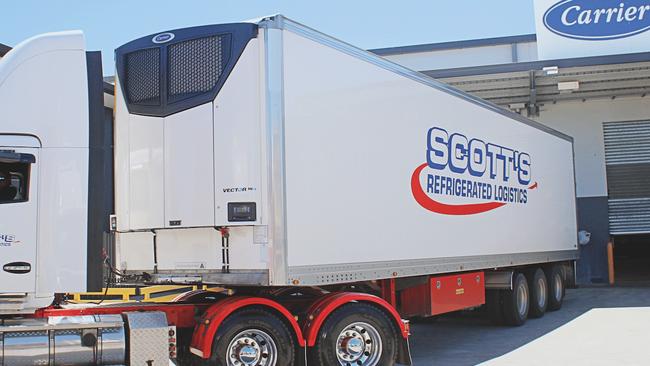
Transport companies Toll Holdings and Lindsay Brothers are believed to already have held talks about a potential acquisition of Scott’s Refrigerated Logistics Group after it collapsed into receivership on Monday.
KordaMentha’s Scott Langdon, Kate Conneely, Michael Korda and John Mouawad are acting as receivers on behalf of creditors, while Anchorage has appointed McGrath Nicol as the voluntary administrator of the business.
Sources say it was lender Gordon Brothers that called in the receiver, and now a sale process will happen swiftly.
Anchorage purchased Scott’s in 2020 from AP Eagers for a price understood to be about $75m.
It came after it was originally set to sell to China’s HNA in 2019 for $400m, but HNA abandoned the plans due to liquidity problems and a new sale process was launched.
Sources close to Scott’s say the company has battled floods, Covid lockdowns and major electricity and fuel price increases, prompting the voluntary administration, despite good progress with the company’s turnaround.
Trading under the Scott’s, Rand, JAT and Harris brands, Scott’s operates Australia’s largest national cold chain road and warehousing network, employing about 1500 people, with customers including Coles, Woolworths, Aldi and IGA.
The business was part of Automotive Holdings Group but APEagers conducted a scrip-based takeover of the company, creating a business worth $2.4bn including debt.
At the time of the deal, carried out by Anchorage, it was expected that supply chains for food were likely to be in stronger demand than ever amid the coronavirus crisis, with shoppers flocking to supermarkets to stock up.
While all eyes may be on Anchorage Capital Partners and its move to place Scott’s Refrigerated Logistics into voluntary administration, some are wondering whether this will also be the play it has in mind for David Jones.
The Australian turnaround fund has purchased David Jones for $100m, and one of the questions in the minds of many is how it will extricate itself from the onerous leases for the luxury department store that stretch on for years.
David Jones has 43 stores and two distribution centres across Australia and New Zealand, as well as a rapidly growing e-commerce business.
A voluntary administration would automatically see David Jones’ leases with its landlords terminated.
The risk for Anchorage, though, is that the business would then be subject to a sale process, and should another buyer come forward at a higher price, the insolvency firm handling the collapse would be obliged to accept that proposal.
Anchorage’s Australian rival Allegro Funds placed Harris Scarfe into voluntary administration shortly after it purchased the business and sold it off to Spotlight.
It was part of a wider acquisition from Steinhoff International’s Greenlit Brands. It also purchased Best & Less, now listed on the Australian Securities Exchange.
Pas, which owns brands such as Review Clothing, Black Pepper and Yarra Trail, was also placed into voluntary administration and snapped up by Larry Kestelman after the leases were reset following a collapse.
Anchorage is a seasoned operator in the retail space, previously owning Dick Smith Electronics, which it purchased for less than $115m in 2012 and floated a year later for $520m, but the business later collapsed.





To join the conversation, please log in. Don't have an account? Register
Join the conversation, you are commenting as Logout